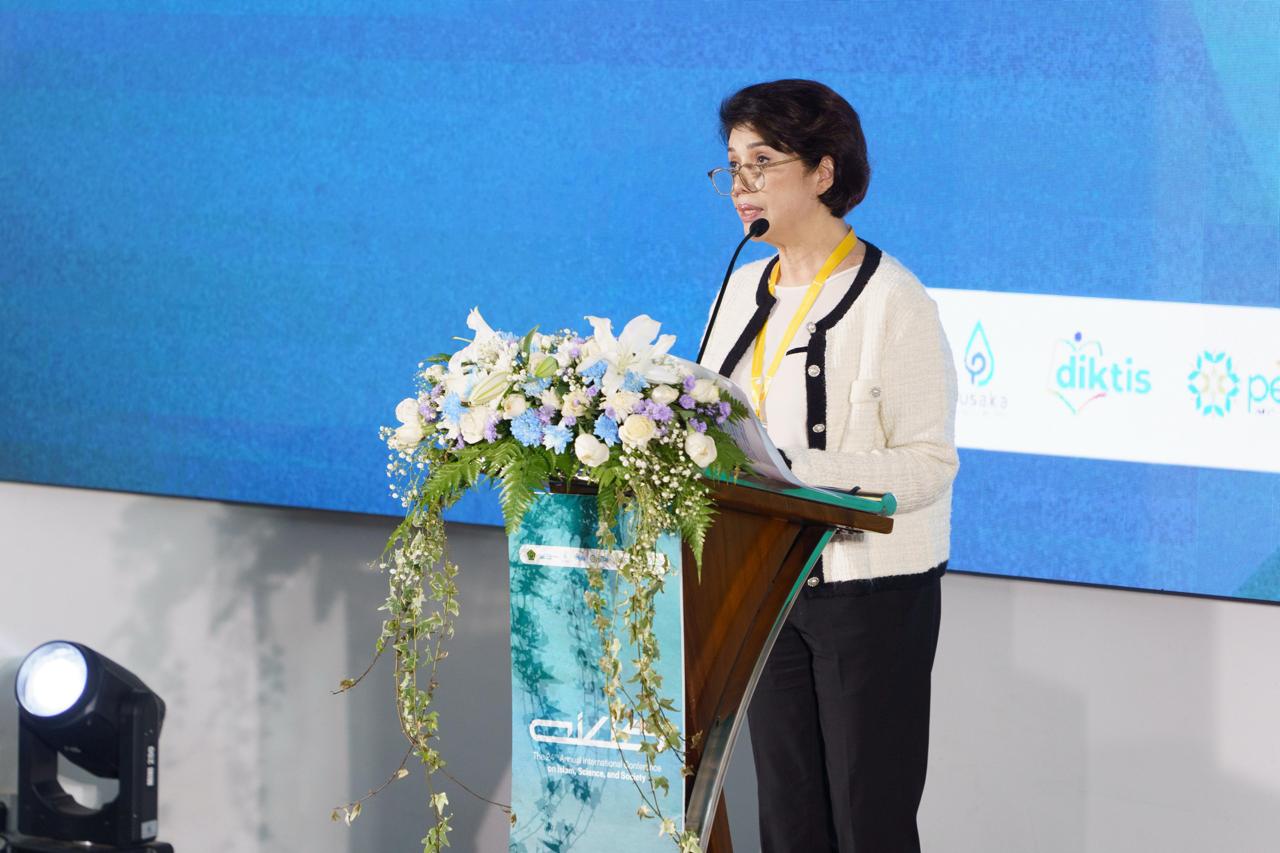More From News
UIII Builds a Bridge to Costa Rica
February 26, 2026
October 29, 2025
Contributor: Maryam Hameed | Photo: Achmad Jatnika

In her presentation at the 24th Annual International Conference on Islam, Science, and Society (AICIS+) 2025 at Universitas Islam Internasional Indonesia (UIII), Prof. Dr. Meiwita Paulina Budiharsana, MPA, Ph.D. explored the close relationship between public health, ethics, and Islamic values. She explained that public health is not only a medical concern but also a matter of justice, fairness, and social responsibility.
Prof. Meiwita began by discussing the major global health challenges that affect millions of people today. She mentioned both communicable diseases such as tuberculosis, malaria, and dengue fever, and non-communicable diseases like heart disease, diabetes, and mental health disorders. These conditions, she noted, represent the world’s leading causes of death and disability. Beyond biological causes, they reflect deep social inequalities and differences in access to care.
She then introduced the concept of Disability-Adjusted Life Years (DALYs), a key measure in public health that represents the years of life lost due to illness, disability, or early death. According to her, this measure helps policymakers identify which health problems cause the greatest loss of well-being and where resources should be directed. It also reminds us that effective health policies must balance medical science with ethics and compassion.
A central part of her presentation focused on public health ethics and its connection with Islamic ethical principles. Universal ethics in health, she explained, emphasize principles such as doing good, avoiding harm, ensuring fairness, and promoting transparency. In the Islamic framework, these principles are strengthened by the moral responsibility to preserve life, maintain cleanliness, and care for one another. Health in Islam is viewed as a divine trust, that must be protected by both individuals and the community.
Prof. Meiwita also referred to the World Health Organization’s findings on the social determinants of health in the Eastern Mediterranean region. She highlighted how factors like poverty, education, employment, environment, and conflict shape people’s access to healthcare and their overall quality of life. Addressing these social conditions, she said, is essential for achieving long-term improvements in public health.
Another important topic she emphasized was health literacy. She described it as the ability of individuals to find, understand, and use health information in their daily lives. Improving health literacy, she said, is one of the most effective ways to empower communities and reduce health gaps between social groups.
In her conclusion, Prof. Meiwita reminded the audience that health is not only the absence of disease but also the presence of justice, awareness, and collective care. She encouraged students, researchers, and policymakers to view public health as a shared mission that connects ethical values, social responsibility, and faith-based understanding.
Her lecture offered a meaningful reflection on how science and spirituality can work together to build healthier and more equitable societies.
Universitas Islam Internasional Indonesia